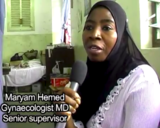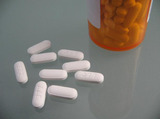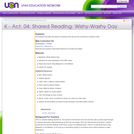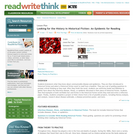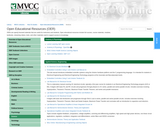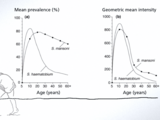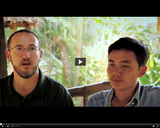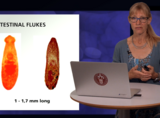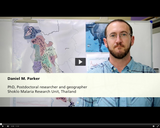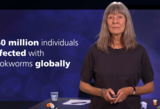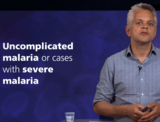Open Educational Resources (OER)
OERs are openly licensed materials that are useful for instructors and students. Open educational resources include full courses, course materials, modules, textbooks, streaming videos, tests, and other materials used to support access to knowledge.
Overview of Open Educational Resources
OER Textbooks Used at MVCC
OER Textbook Collections
Open Courses
OER Images
Other OER materials
Copyright and Creative Commons
Research on OER
OER by Discipline
Art & Music
Business
Criminal Justice
Developmental Reading & Writing
English
History
Math
Political Science
Psychology
Science
Sociology
Technology
Anatomy & Physiology
Lumen Learning A&P open course
Anatomy & Physiology - OpenStax
WISC-Online Health Science Learning Objects
Open Learning Initiative: A&P I & II
Applied Science, Engineering
AC Electrical Circuits Workbook
Embedded Controllers Using C and Arduino Lab Manual 2e
This lab manual introduces embedded controller systems using the Arduino hardware platform and the C programming language. It is intended for students in Electrical Engineering and Electrical Engineering Technology programs at the Associate and Baccalaureate levels.
Embedded Controllers Using C and Arduino Textbook 2e
Lab Manual for AC Electrical Circuits
This is a laboratory manual covering AC electrical circuits, typically a first year course for students in an Electrical Engineering Technology program (AAS or BS). It begins with basic RL and RC circuits and progresses through phasors to AC series, parallel and series-parallel circuits. Includes exercises involving Superposition, Thevenin's Theorem, Maximum Power Transfer Theorem, and series and parallel resonance.
Lab Manual for Computer Programming with Python and Multisim 3e
Lab Manual for DC Electrical Circuits
It begins with basic lab introduction and progresses through Ohm's Law to series, parallel and series-parallel circuits. Includes exercises involving Superposition, Thevenin's Theorem, Mesh and Nodal Analysis, Maximum Power Transfer and concludes with an introduction to capacitors and inductors.
Lab Manual for Operational Amplifiers & linear Integrated Circuits 3e
Lab Manual for Semiconductor Devices: Theory and Application
Operational Amplifiers and Linear Integrated Circuits Textbook 3e
Topics include negative feedback, comparators, voltage amplifiers, summing and differencing amplifiers, high speed and high power devices, non-linear circuit applications, regulators, oscillators, integrators and differentiators, active filters and AD/DA conversion
Semiconductor Devices: Theory and Application Textbook
Wisc Online: Manufacturing & Engineering Learning Objects
Biology
Lumen Learning Open Biology I
Lumen Learning Biology I Lab Manual
Biology - OpenStax
Concepts in Biology - OpenStax
Biofundamentals - online course through the University of Colorado
Intro to Biology lectures - MIT
Khan Academy - Biology
Phet Simulations
PLOS Biology Publications
Summer learning activity student example
Summer learning activity rubric
Summer learning activity student and instructor instructions
WISC-Online Biology Learning Objects
Chemistry
The Basics of General, Organic and Biological Chemistry
Chem 101 - Saylor
ChemCollective
Introductory Chemistry
David W. Ball of Cleveland State University brings his new survey of general chemistry text, Introductory Chemistry. This book is intended for a one-semester introductory or preparatory chemistry course. Throughout the chapters, David presents two features that reinforce the theme of the textbook, that chemistry is everywhere.
Khan Academy - Chemistry
Lumen Learning Chemistry open course
Lumen Learning Chemister Lab Manual
OpenChemistry Lectures - UC Irvine
OpenChemistry features a series of video lectures spanning courses including Preparation for General Chemistry, Organic, Physical, and Graduate level Chemistry among others. These videos are well organized with the topics covered in each listed beside their titles.
Organic Chemistry - MIT
Organic Chemistry - MIT
Phet Simulations
Principles of Chemical Science - MIT Lectures
This course provides an introduction to the chemistry of biological, inorganic, and organic molecules. The emphasis is on basic principles of atomic and molecular electronic structure, thermodynamics, acid-base and redox equilibria, chemical kinetics, and catalysis.
Thermodynamics and Chemistry
Thermodynamics and Chemistry is designed primarily as a textbook for a one-semester course in classical chemical thermodynamics at the graduate or undergraduate level. It can also serve as a supplementary text and thermodynamics reference source.
WISC-Online Chemitry Learning Objects
Earth Sciences
Lumen Learning Earth Sciences
Courses include: Geology, Earth Science, & Geography
Phet Simulations
WISC-Online Earth Science Learning Objects
Health and Nutrition
Lifetime Fitness and Wellness - SUNY OER course
Disease Prevention and Healthy Lifestyles
Contemporary Healthy Issues
Physics
Khan Academy - Physics
Intro to Mechanics - Saylor
Intro to Electromagnetism - Saylor
PH151 & PH152: General Physics
Phet Simulations
WISC Online Physics Learning Objects


